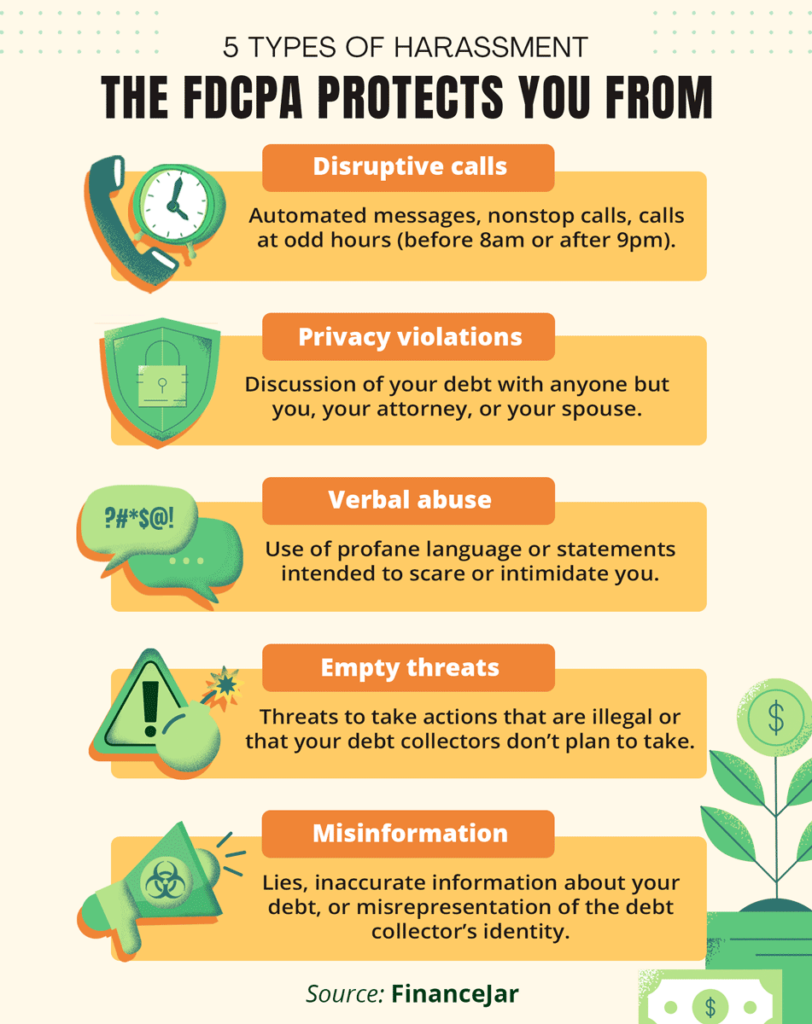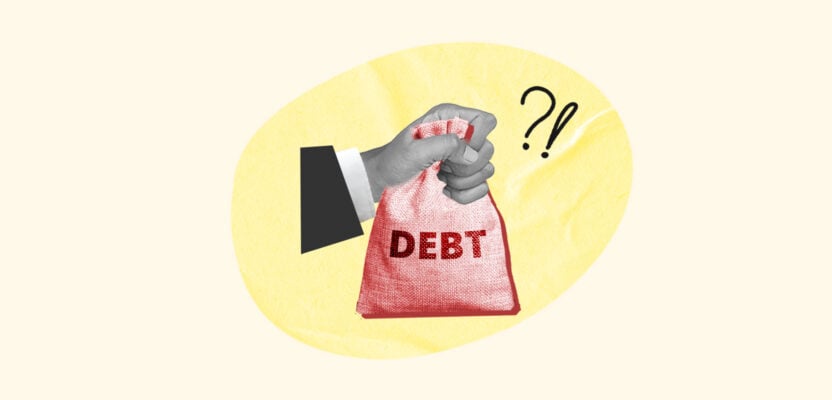Table of Contents
When you borrow money from someone, it’s based on the understanding that you’ll pay the money back. Whether or not you follow through is between you and them. So where do debt collectors come into play?
Here’s a breakdown of what exactly a debt collector is, what debt collectors do, and what you (as the debtor) can do to deal with them when they start calling.
Who’s considered a debt collector?
A debt collector is defined as any person or organization in the business of pursuing overdue payments on debts. Common examples include debt collection agencies, creditors with their own debt collection department, and lawyers.
Debt collectors generally fall into two categories:
- First-party debt collectors: Individuals or businesses collecting payments for debts they own themselves.
- Third-party debt collectors: Individuals or businesses collecting payments on behalf of other businesses or institutions.
If you’re contacted by a company you’ve never heard of, then it doesn’t automatically mean it’s a scam—instead, it could mean that one of your creditors hired a third-party debt collector to recover payments on their behalf.
What’s the difference between first-party and third-party debt collectors?
If you’re getting hounded by a person or group of people asking you to a pay a debt, then it may seem all the same to you whether they’re first-party or third-party collectors. However, which category they fall under has serious implications for what they’re allowed to do when trying to collect payments from you.
This is because federal law distinguishes between the people or organizations you originally owed money to and businesses that profit from buying and collecting payments toward debts owed to others.
While there are little to no restrictions on how often first-party collectors can ask you to pay a debt you owe them, debt buyers and third-party debt collection companies have to abide by the Fair Debt Collection Practices Act, a federal law designed to protect consumers from predatory debt collection practices.
What do debt collectors do?
Regardless of what type of debt collector they are, every debt collector’s main goal is to get money for overdue debts. They’ll usually contact you asking you for payment and also report your debt to one or more of the major credit reporting agencies (TransUnion, Equifax, and Experian).
Debt collectors may attempt to collect money from you in the following ways:
- Calling your personal and office telephones
- Sending you text messages
- Mailing you late-payment notices
- Contacting your family, friends, and neighbors to get your contact information
- Turning up at your front door
- Filing a lawsuit against you
However, as mentioned, all third-party debt collectors must abide by the guidelines set out in the Fair Debt Collection Practices Act.
What Debt Collectors Aren’t Allowed to Do

What to do if a debt collector contacts you
If debt collectors are calling you, answer the phone. Ignoring debt collectors can have nasty consequences, including potential lawsuits and growing interest on your debt. In extreme cases, debt collectors can even garnish your wages.
If you’re feeling stuck or you’re struggling to get out of debt, then don’t worry. There are several ways you can .
Here are some options you can explore to take back control over your finances and move past collections:
- Dispute the debt in collections (if it’s an error)
- Propose a debt settlement
- Pay your collections in full
- Negotiate with your debt collectors
- Explore tips for dealing with debt collectors when you can’t pay
- Ask your debt collectors to stop contacting you (if they’re collecting time-barred debt)
Once you’ve dealt with your debt, you can start rebuilding your credit after collections and get your finances back in order. It may take time, but even collections won’t hold you back forever.
Takeaway: A debt collector is any person or organization trying to collect money for a debt you owe.
- The most common examples of debt collectors are creditors with their own debt collection department, debt collection agencies, and lawyers.
- Debt collectors fall into two categories: first-party debt collectors (who collect money you owe them) and third-party debt collectors (who collect money you owe to someone else).
- Debt collectors may communicate with you by phone, mail, or other means. They can also ask people you know for your contact information, visit your home, or sue you.
- If debt collectors start contacting you, it's best not to ignore them. Instead, try negotiating with them, disputing the debt, or asking them to stop contacting you if the debt is time-barred.







